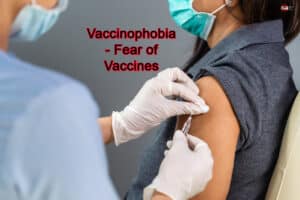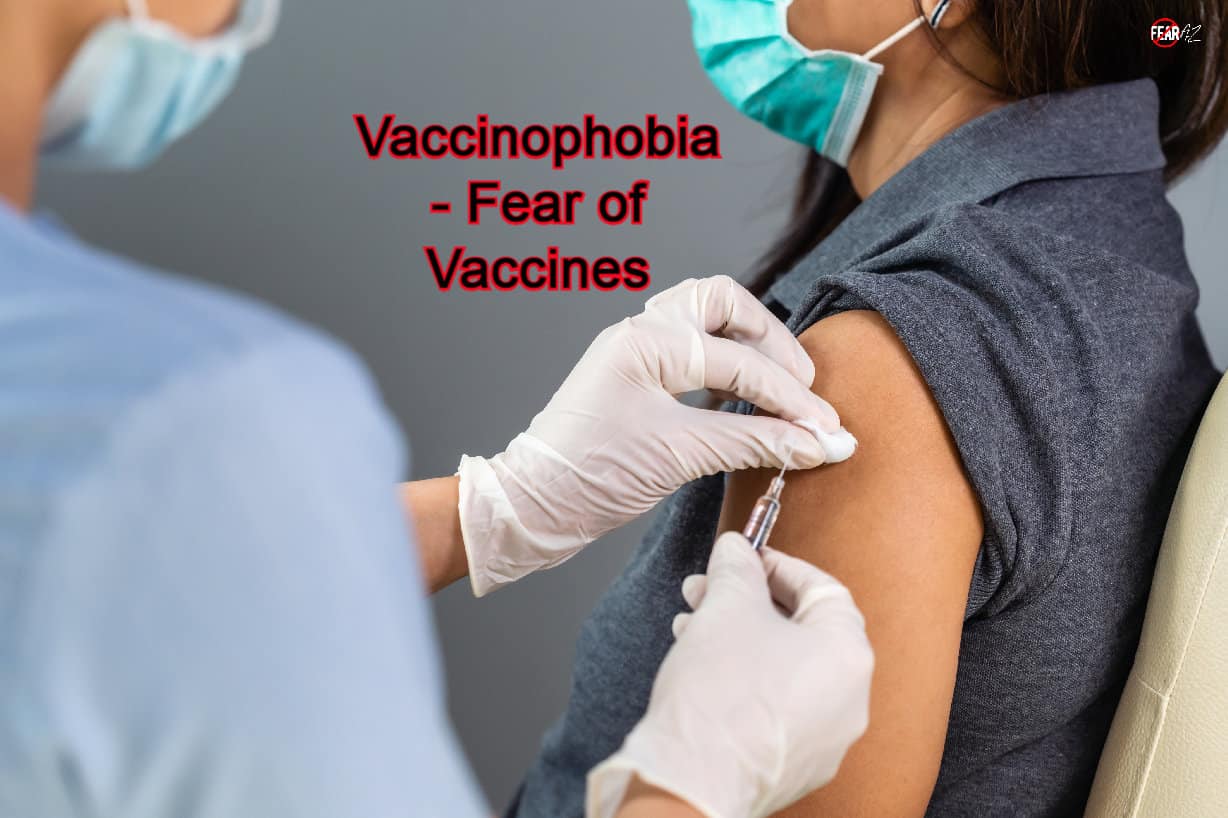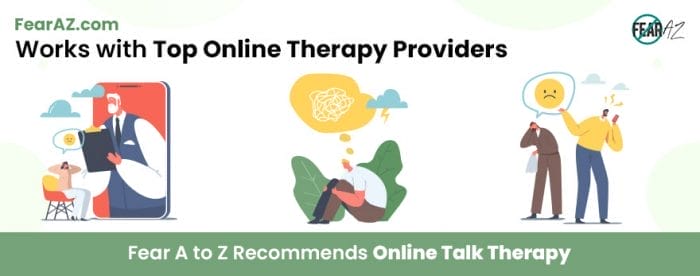Share This Article
Vaccines May Scare Some More than the Illness Itself
Do you get scared when you learn you’ll need a shot or that a new vaccine is on its way? Do you fear getting sick or experiencing harm as a result of receiving a vaccination?
Do you feel nervous, shaky, or even sick to your stomach when you think about getting a vaccine? Would you avoid a vaccine at all costs, even if you knew it might save your life?
If so, you might have vaccinophobia, which is the name for a phobia of vaccines. Vaccinophobia can be tough to deal with, but rest assured there are ways to overcome it.
By learning more about what causes vaccinophobia, its symptoms, and the vaccinophobia treatment options available, you can start to feel more in control and less afraid.

What Is Vaccinophobia?
Vaccinophobia is a fear of vaccines or a phobia of getting shots. It’s an anxiety disorder that can make people feel extremely anxious or afraid when they think about getting vaccinated.
You might even feel that you have little control over your health when you’re so afraid of something that could prevent you from becoming ill.
Vaccines are an effective way to protect you from getting sick. They expose your body to a tiny amount of a virus or bacteria, so your immune system can learn how to fight it off if you’re ever exposed to the real thing.
Vaccines have been around for a while and have saved millions of lives; they are beneficial for both your own protection and the protection of others.
Vaccinophobia may result from a bad experience, like getting a shot that hurt a lot or made you feel sick. It may have also developed because of rumors or scary stories you’ve heard from other people about vaccines.
Symptoms of the Phobia
Vaccinophobia causes both psychological and physical symptoms ranging from general anxiety to increased or irregular heart rates. The following list may not include all of the potential symptoms.
Psychological Symptoms
Psychological symptoms can include feeling nervous or scared when you think about getting a vaccine.
You may also experience:
- Panic attacks
- Anxiety
- Fear of getting hurt
- Fearing death
- Confusion, irritability, and mood swings.
You might worry about getting sick or about something bad happening to you after you get vaccinated. Sometimes, this fear can be so intense that you avoid getting vaccines altogether, even if it means putting your health at risk.
Physical Symptoms
When faced with the possibility of getting vaccinated, some people may also experience physical symptoms besides the psychological ones.
People with vaccinophobia may experience a few or several of these symptoms:
- Trembling
- Sweating
- Trouble breathing
- Irregular or rapid heartbeat
- Ringing or buzzing in the ear
- Nausea
- Vomiting
- Headache
- High blood pressure
- Dry mouth
- Hyperventilation
- Dizziness or lightheadedness
- Muscle tension or aches
These physical symptoms can be uncomfortable and may even make it difficult for individuals to follow through with getting vaccinated. However, they are typically short-lived and will generally subside once the individual is no longer in the triggering situation.
Self-Help
How Can I Overcome My Fear of Vaccines?
There are several things you can do to help yourself feel less afraid if you have vaccinophobia. Self-help strategies can help alleviate your symptoms and eventually overcome your fear of vaccines.
Some strategies that may be helpful include:
- Practicing relaxation techniques, such as deep breathing or meditation, to calm the mind and body when feeling anxious or fearful.
- Gradual exposure therapy, which involves gradually exposing the individual to the feared object or situation in a safe and controlled environment, allowing them to become more comfortable and desensitized to the fear.
- Cognitive-behavioral therapy (CBT), which involves working with a trained therapist to identify and change negative thought patterns that contribute to the fear of vaccines.
- Talk to someone you trust, like a parent, teacher, or doctor, about your fears. They can help you understand why you’re feeling this way and come up with a plan to overcome it.
- Learn more about vaccines and how they work. The more you understand about the science behind vaccines, the less scary they might seem.
If you’re having trouble controlling your fear on your own or have more severe symptoms, you might benefit from getting professional assistance.
Professional Help
It may be necessary to seek professional treatment for vaccinophobia if self-help techniques prove ineffective. There are several options for treatment that help with different kinds of phobias:
Counseling or therapy with a licensed mental health professional can help the individual identify and work through underlying fears and anxieties.
Doctors may prescribe anti-anxiety drugs or beta-blockers to help manage symptoms and reduce the fear and anxiety associated with vaccines. Remember, you should only use medication under the guidance of a licensed medical professional.
How to Avoid Altogether
While vaccinations are a crucial part of preserving public health, there are some circumstances in which it may be wise to forgo them.
For instance, some vaccinations might not be suitable for those with compromised immune systems, severe allergies to vaccine components, or severe reactions to prior vaccinations.
Discuss alternative options for maintaining good health and preventing disease spread with a healthcare provider if there are any valid reasons to avoid vaccines.
It may not be possible to entirely eliminate the need for vaccines, so it is best to work on yourself or with a professional to treat the phobia.
Related Phobias: Tomophobia – Fear of Surgical Operations
Wrapping Up
While vaccinophobia can be a challenging and often uncomfortable phobia to deal with, there is hope for those struggling with it.
People can manage their fear and lead healthy, fulfilling lives with the aid of self-help techniques and professional assistance. Understanding why you are scared of vaccines and getting the support you need will allow you to live your best life.




